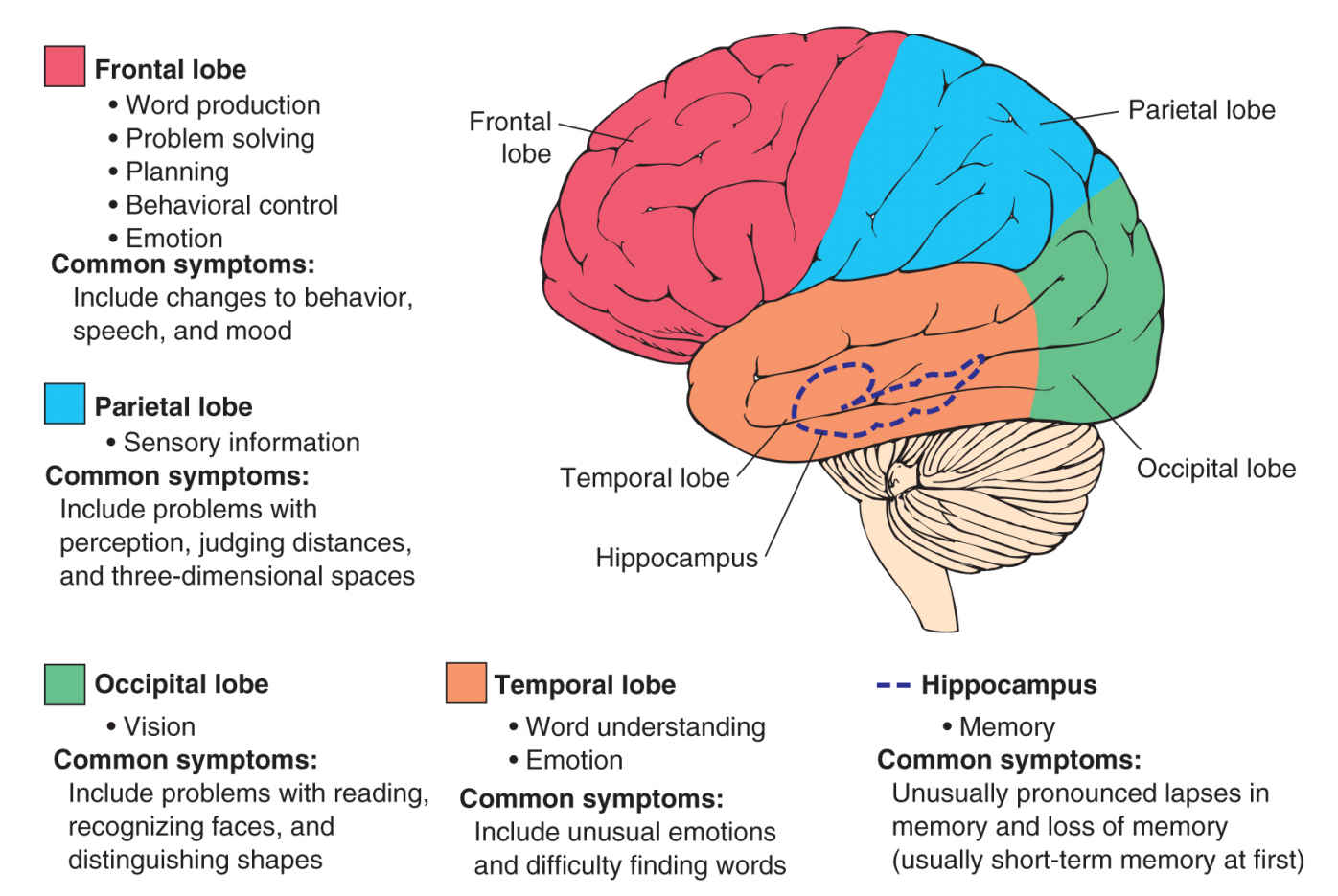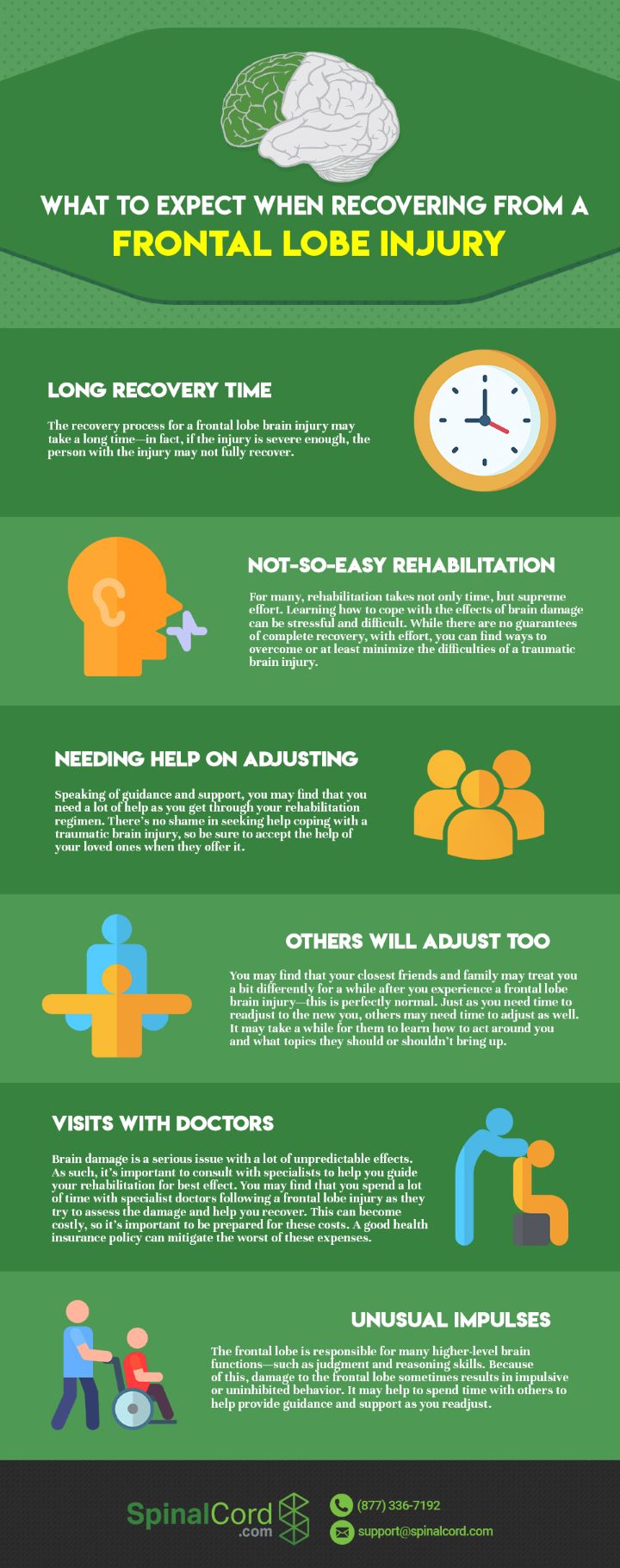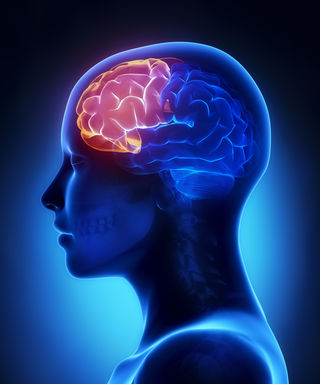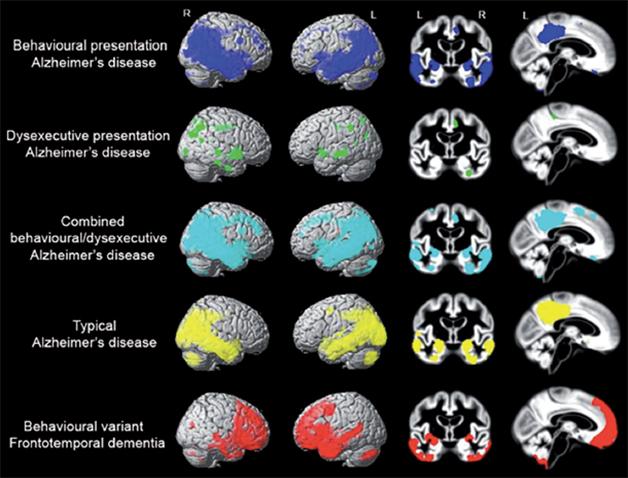Frontal Lobe Dysfunction And Dementia
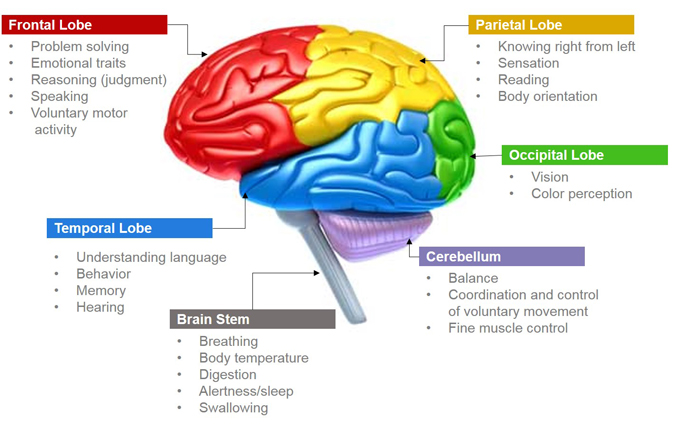
Dementia The second-most common cause of dementia in people under 65 is frontotemporal dementia FTD a group of disorders affecting the frontal and temporal lobes of the brain.
Frontal lobe dysfunction and dementia. Frontal lobe dementia directly affects the frontal lobe that is found behind the forehead. A disease that robs a person of lifetime identity also claims a hold on appetite leaving patients with frontotemporal dementia victim to overeating and even death by food consumption. Start date Wednesday at 1106 PM.
Frontotemporal dementia FTD a common cause of dementia is a group of disorders that occur when nerve cells in the frontal and temporal lobes of the brain are lost. May 28 2021 1 0. It affects 5 to 15 percent of people with dementia.
One of these more specific types is frontotemporal dementia FTD a disorder that affects the frontal and temporal lobes of the brain located at the front and lower sides of the brain. Frontotemporal dementia isnt one condition. Therefore it is also referred to as frontotemporal dementia.
FTD can affect behavior personality language and movement. FTD is the diagnosis for about 5 percent of people with major neurocognitive disorders dementia. Its several disorders that affect the frontal and temporal lobes of the brain.
These disorders are among the most common dementias that strike at younger ages. This causes the lobes to shrink. Frontotemporal disorders are the result of damage to neurons nerve cells in parts of the brain called the frontal and temporal lobes.
Now the University of California-San Francisco UCSF investigators who put frontotemporal dementia on the diagnostic map have pinpointed the brain region. Frontal temporal lobe dementia with behavioural variant. Youve probably heard of Alzheimers disease.
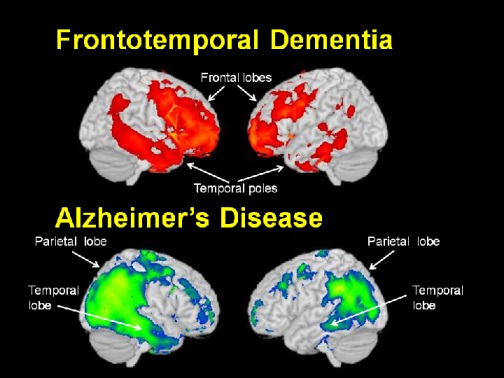
A disease that robs a person of lifetime identity also claims a hold on appetite leaving patients with frontotemporal dementia victim to overeating and even death by food consumption.
Frontal lobe dysfunction and dementia. Youve probably heard of Alzheimers disease. Wednesday at 1106 PM 1 Hi everyone. It also impacts the temporal lobe region that sits behind your ears.
Frontal temporal lobe dementia with behavioural variant. Frontotemporal dementia FTD a common cause of dementia is a group of disorders that occur when nerve cells in the frontal and temporal lobes of the brain are lost. The aim of this study was to describe nurses experience of difficulties and possibilities in caring for people with dementia diseases with frontal-lobe dysfunction.
These disorders are among the most common dementias that strike at younger ages. It may be the most. Nursing care for people with dementia diseases affecting the frontal lobes places special demands on staff but there is little information available about how best to tailor nursing care.
Frontotemporal disorders are the result of damage to neurons nerve cells in parts of the brain called the frontal and temporal lobes. Frontotemporal dementia includes two distinct conditions. Frontotemporal dementia FTD is a type of dementia that happens because of damage to the frontal and temporal lobes of your brain.
This causes the lobes to shrink. One of these more specific types is frontotemporal dementia FTD a disorder that affects the frontal and temporal lobes of the brain located at the front and lower sides of the brain. Its several disorders that affect the frontal and temporal lobes of the brain.
May 28 2021 1 0. A dementia associated with degeneration of the frontotemporal lobe and clinically associated with personality and behavioral changes such as disinhibition apathy and lack of insight. My mum is in a care home and they have put her on this drug but I have noticed she has got.

These disorders are among the most common dementias that strike at younger ages.
Frontal lobe dysfunction and dementia. It also impacts the temporal lobe region that sits behind your ears. Frontotemporal dementia isnt one condition. It affects 5 to 15 percent of people with dementia.
Damage to the frontal lobe is most commonly caused by degenerative worsening disease or a stroke and there are other less common conditions that affect the frontal lobes as well. Nursing care for people with dementia diseases affecting the frontal lobes places special demands on staff but there is little information available about how best to tailor nursing care. FTD can affect behavior personality language and movement.
Frontotemporal dementia includes two distinct conditions. Anybody have experience in the drug Memantine. The aim of this study was to describe nurses experience of difficulties and possibilities in caring for people with dementia diseases with frontal-lobe dysfunction.
Personality emotions behavior and speech are controlled in these. It may be the most. Its several disorders that affect the frontal and temporal lobes of the brain.
As neurons die in the frontal and temporal regions these lobes atrophy or shrink. About 70 percent of cases begin before age 65 so it is a more common dementia among the young old FTD involves degeneration of the frontal and temporal lobes of the brain. Frontotemporal disorders are the result of damage to neurons nerve cells in parts of the brain called the frontal and temporal lobes.
Frontotemporal dementia FTD is a type of dementia that happens because of damage to the frontal and temporal lobes of your brain. This causes the lobes to shrink. Frontal lobe dementia is also known as Picks disease and is named after Arnold Pick the neurologist and psychiatrist who first documented the disease in 1892.

